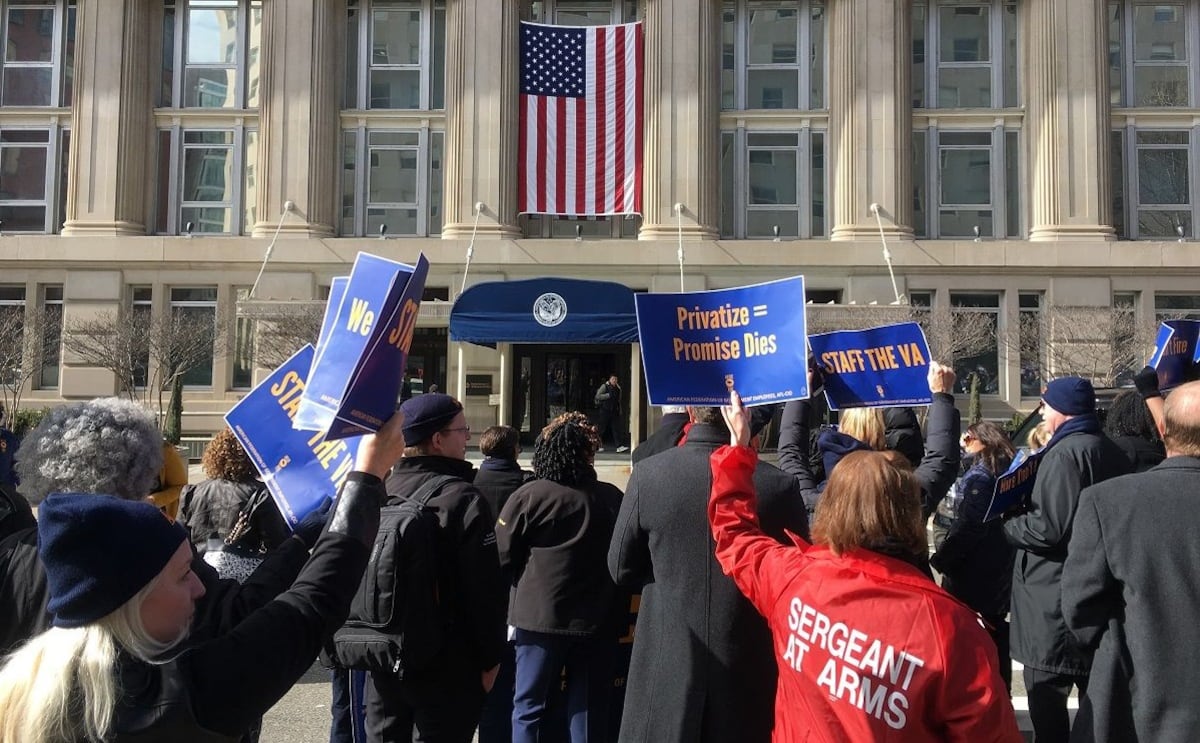House and Senate Republican leaders introduced legislation this week designed to make it easier to discipline and fire Veterans Affairs employees, reviving a priority of President Donald Trump’s first term in office just before his second term begins.
The Restore VA Accountability Act is sponsored by Senate Veterans’ Affairs Committee Chairman Jerry Moran, R-Kansas, and House Veterans’ Affairs Committee Chairman Mike Bost, R-Ill., indicating it could be among the first major pieces of veterans policy approved this session of Congress.
In a statement, Moran said the legislation is needed to “help make certain that veterans receive the high-quality care and benefits they’ve earned and VA staff have the healthy workplace they deserve.”
Bost echoed that sentiment as well.
“Time and time again, we saw bad VA employees who don’t have veterans’ best interests at heart just reshuffled to another part of the agency,” he said in a statement. “That has a direct impact on not only veterans, but the mission of VA and the employees who are trying to do their jobs well.”
RELATED
The issue of accountability was a major focus early in Trump’s previous term, with Congress approving legislation in 2017 giving senior department leaders special authority to demote or fire employees based on misconduct or poor performance.
Trump touted the measure in his 2018 State of the Union address, claiming more than 1,500 firings at the agency in the first few months of the bill. However, VA officials said almost half of that total was made up of probationary employees with typically high turnover rates, and did not clarify whether the rest would have been dismissed under the old rules.
In the years that followed, many provisions of the 2017 accountability laws were successfully challenged in court, and eventually abandoned by department leaders. Current VA officials have repeatedly insisted that they have the tools needed to properly deal with problematic workers.
But conservative lawmakers have disagreed, and have pushed for ways to diminish union protections and provide faster responses to reports of staffing problems, especially criminal charges leveled against department workers.
The new bill would get rid of federal requirements for a performance improvement plan prior to any employee disciplinary action and “unlock expedited removal, demotion, or suspension authority for use with all categories of VA employees,” according to a summary provided by the committees.
It would also update the appeals process in an effort to ensure that decisions “supported by substantial evidence” are upheld. That has been a major point of contention in the past, with courts frequently rejecting VA leaders’ reasoning for firings.
“The intent of [this bill] is to hold that 1% of bad VA employees accountable,” Bost said.
The measure has received initial backing from a number of veterans organizations, including the Veterans of Foreign Wars, American Legion and National Guard Association of the United States.
Whether Democrats will also lend support to the effort is unclear. The 2017 bill did receive some bipartisan support, but party leaders have accused Republicans of using the accountability issue as a way to weaken union protections among federal workers.
No timeline has been set for hearings or votes on the new measure.
Leo covers Congress, Veterans Affairs and the White House for Military Times. He has covered Washington, D.C. since 2004, focusing on military personnel and veterans policies. His work has earned numerous honors, including a 2009 Polk award, a 2010 National Headliner Award, the IAVA Leadership in Journalism award and the VFW News Media award.
Read the full article here







